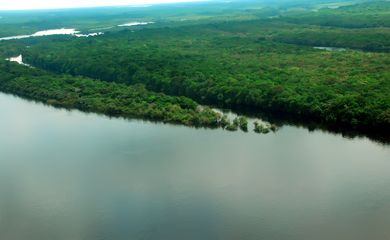UN awards Atlantic forest restoration pact

The Trinational Atlantic Forest Pact—a multi-sectoral coalition formed by Brazil, Argentina, and Paraguay—was one of the ten nature restoration initiatives awarded by the United Nations (UN). The World Restoration Flagships were unveiled Tuesday (Dec. 13). during the 15th UN Biodiversity Conference (COP15) in Montreal.

The coalition works on the preservation of habitats of a number of endangered animals by building wildlife corridors for such species such the jaguar and the golden lion tamarin. It also guarantees water supply in nature and in the urban areas, combats climate change, and generates thousands of jobs. Thus far, the project has restored about 700 thousand hectares of forest, aiming to reach 1 million hectares by 2030 and 15 million hectares by 2050.
Efforts are spearheaded by the Pact for the Restoration of the Atlantic Forest movement, which was created in 2009 and boasts over 300 partners, and by the Trinational Network for the Restoration of the Atlantic Forest, active since 2018 with more than 60 members. Both collectives have associates with more than 30 years of experience in restoration across a number of socioeconomic and ecological settings.
The organizations work side by side with local, national, and international players fostering the exchange of experiences and capacity building and bringing about the conditions to make restoration viable in the territory, said the executive secretary of the Atlantic Forest Restoration Pact, Alex Mendes.
“We’ve been working a lot with the creation of reference materials. Throughout the history of the Pact, […] working alongside universities and other research institutes and NGOs with this scientific perspective, we’ve put together different materials—including books and scientific articles—in a bid to provide these actors with a basis to make decisions and draft public policies,” he explained.
The Atlantic forest biome originally stretched across 17 Brazilian states, from the coast of Paraíba to the north of Rio Grande do Sul. It is the most devastated biome in the country and has been reduced to fragments over centuries of increasing logging and farming activities and the construction of cities.
UN Decade on Ecosystem Restoration
The UN will offer technical support or funding to the selected initiatives. Human activity has significantly altered three quarters of the planet’s land and two thirds of its marine environments, the UN reported, putting a million species at risk of extinction.
The initiatives were recognized as part of the UN Decade of Ecosystem Restoration, running from 2021 to 2030. Coordinated by the UN Environment Program (UNEP) and the Food and Agriculture Organization (FAO), the global movement aims to mitigate climate change by preventing, stopping, and reversing the degradation of natural areas worldwide.




